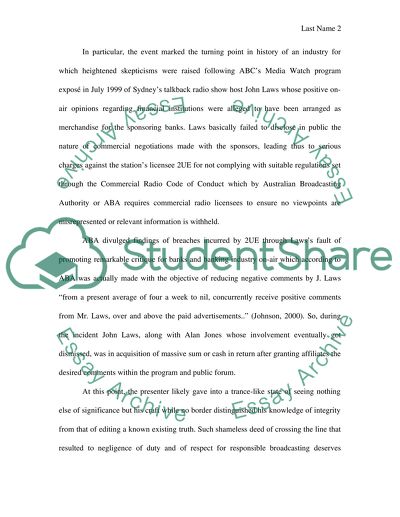Cite this document
(“Cash for comment Essay Example | Topics and Well Written Essays - 1750 words”, n.d.)
Retrieved from https://studentshare.org/philosophy/1422847-cash-for-comment
Retrieved from https://studentshare.org/philosophy/1422847-cash-for-comment
(Cash for Comment Essay Example | Topics and Well Written Essays - 1750 Words)
https://studentshare.org/philosophy/1422847-cash-for-comment.
https://studentshare.org/philosophy/1422847-cash-for-comment.
“Cash for Comment Essay Example | Topics and Well Written Essays - 1750 Words”, n.d. https://studentshare.org/philosophy/1422847-cash-for-comment.


